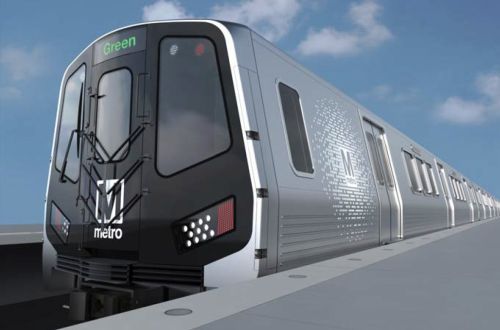The new fleet will be delivered from 2024 onwards, enabling the withdrawal of life-expired 2000 and 3000 series cars.
The estimated purchase price for the new vehicles has not been disclosed.
The order volume could reach 800 cars if all options are exercised. This will give WMATA the flexibility to support a range of initiatives and scenarios, including expanding all trains to the maximum eight-car length, increasing peak frequencies, and retiring the 6000 series fleet in lieu of a midlife overhaul programme.
WMATA says the 8000 series procurement will build on the success of its 7000 series cars, which account for more than half of all trains in service and include popular features such as passenger information screens, automated announcements, “smart doors” that individually respond to an obstruction, high-definition CCTV cameras, increased space between seats, wider aisles, and non-slip flooring instead of carpet.
The 7000 series cars, built by Kawasaki Rail Car USA, currently travel an average of 251,000km before experiencing a delay due to a mechanical issue – more than double the reliability of the legacy 1000, 4000, and most 5000 series cars which have already been withdrawn.
Features of the 8000 series will include:
• digital advertising screens to generate revenue and reduce labor costs associated with manually changing advertisements
• support for remote announcements from the operational control centre in addition to automated and driver announcements
• dynamic digital network maps
• 110v at-seat power sockets for charging electronic devices, and
• Additional handholds and improvements to lighting and floor markings
Proposals for the new vehicles are due in late January and the contract will be awarded in late-2019.
WMATA says delivery of the 7000 series fleet is on schedule, with the 748th and final car due to arrive in the capital at the end of next year.
The RFP document can be found here.

